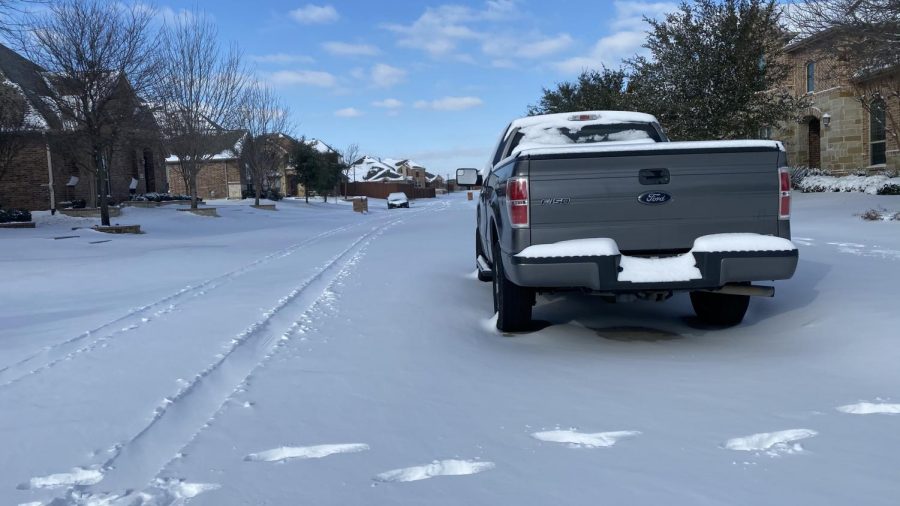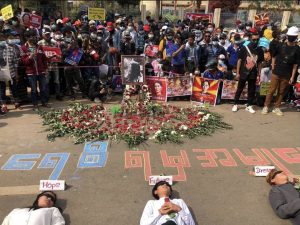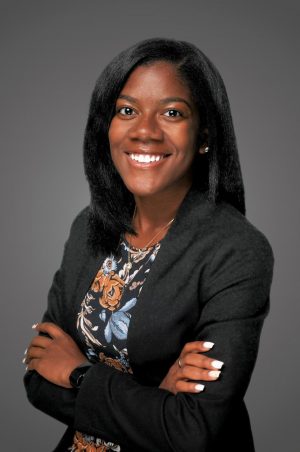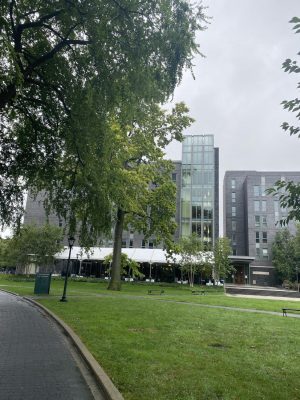Fordham Students Navigate a Historic Winter Storm in Texas
Power outages, bursting pipes and freezing temperatures wracked the lives of remote students.
BK1 BENNETT VIA FLICKR
Fordham students experienced power outages and even home damage as a result of the record-breaking Texas snowstorm in February.
March 4, 2021
The state of Texas, used to temperatures spanning from 50 to 70 degrees Fahrenheit during the winter months, did not anticipate the snowstorm and accompanying freezing temperatures that began on Monday, Feb. 15. Temperatures in cities across the state reached historic lows –– Dallas dipped to 5 degrees Fahrenheit, which is the coldest it’s been since 1989, and both Austin and San Antonio were in the single digits for the first time in 30 years, according to CNN.
Over the next week, millions of Texans lost power, attempted to keep themselves warm as temperatures dropped, navigated dwindling supplies in grocery stores, experienced pipe bursts and faced widespread water shortages.
The Austin American-Statesman reported over 70 storm-related deaths as of Feb. 25, including those caused by carbon monoxide poisoning, traffic accidents and extreme cold weather incidents.
Starting on the evening of Feb. 15, Meredith Schutt, Fordham College at Lincoln Center (FCLC) ’23, lost power and heating and experienced two pipe bursts in her Houston home. When the first pipe burst in the bathroom, her family had to pay $400 to repair it. The second pipe was fixed with the help of a neighbor and friend of the family.
“There’s a lot of community here in Houston. I think this might be specific to Houston, just because we’ve experienced a lot of storms in general,” she said. “You know what that feeling is like and you want to do everything you can to help someone. So, this was definitely a new beast but it wasn’t an unfamiliar challenge.”
Power Outages Across Texas
“The entire downtown area was completely lit up on one of the coldest nights that we had here, and the surrounding … area was just completely dark because the power was just completely off.” Meredith Schutt, FCLC ’23
Despite the damage caused by a similar storm that occurred in 2011, Texas power generators did not make adjustments to prevent power plants from freezing in the future.
The Electric Reliability Council of Texas (ERCOT), which controls about 90% of Texas’ electric load, was said to be experiencing a “record-breaking demand,” which it attempted to offset with their rolling blackout system. Regardless of these efforts, homes and businesses remained out of power for the rest of the week.
“The entire downtown area was completely lit up on one of the coldest nights that we had here, and the surrounding … area was just completely dark because the power was just completely off,” Schutt said. “Maybe someone who’s on the board of directors of specific power companies is not turning off power in certain areas — if you catch my drift — because my dad’s area did not lose power at all. Not once.”
This may have occurred as a result of differing power contracts in Texas: While some residents pay wholesale prices for their power to save money, others pay higher fixed prices. Wholesale electricity prices fluctuate on demand, meaning severe weather causes low supply, increased demand and higher prices.
According to the Associated Press, the regular price of wholesale power rose from a couple of cents per kilowatt-hour to nearly $9 per kilowatt-hour after the storm. In other words, residents reliant on wholesale power could not afford the higher price, leaving them without electricity for longer.
Texas Government Actions and Accountability
The actions of the local government in Houston have also been viewed as lackluster compared to the aid residents of Texas are offering each other. Regan Kroger, FCLC ’23, has never been fond of the political atmosphere of Texas, but she was particularly displeased with the influx of blaming and lack of accountability.
“If you are an elected official, you should care about your constituents, and you should be doing everything at a time of crisis to let them know that you care — as a good elected official or as a good person.” Cathleen Freedman, FCLC ’22
Kroger referred to the comments Gov. Greg Abbott made on Fox News while Texas was in the thick of the storm.
When asked about the Green New Deal, Abbott said that it would be “a deadly deal for the United States of America” and attributed the power outages in Texas to a loss of wind and solar energy; experts and officials stressed that the issue had more to do with fossil fuels. Texas Sen. Ted Cruz also faced criticism for leaving his state in the middle of the freeze to go to a luxury resort in Cancun on Wednesday, Feb. 17.
“The worst one was the local government in Houston. Houston’s mayor told everyone to stop dripping their pipes because it was causing low water pressure, but they weren’t going to reimburse anyone for pipes or anything, so it was all a hot mess. The government was looking out for their own infrastructure and their own name, rather than the people,” Kroger said.
Kroger’s experience with the storm and resulting outages was similar to Schutt’s. Aside from her plumbing being affected until Thursday, her family also lost cell phone data and Wi-Fi connection from Monday to Wednesday. Kroger recalled having to drive across difficult, snow-ridden roads to find a Wi-Fi spot for her online classes; her professors and peers were patient and sympathetic to her situation.
Both Kroger and Schutt now have power, emphasizing that they came out of the storm relatively unscathed compared to other Texans.
For Cathleen Freedman, FCLC ’22, the storm was more destructive. Although her father booked a hotel room for the family in advance, damage to their house seemed inevitable.
“One of the insurance people who came by took a look and said, ‘I came here thinking I was going to see the Little Dipper, but I’ve seen the whole Milky Way.’’’ Cathleen Freedman
Between light fixtures breaking and multiple leaks occurring throughout her home, Freedman was gathering her wet belongings to leave and talking to her father when the ceiling of the bedroom fell through. Although they were far enough away to avoid injuries, they were left shaken by the event.
Following this incident, their initial reservation was canceled due to a lack of power to maintain hotel facilities. Eventually, the Freedman family searched for and landed on a hotel that was able to accommodate guests. A week later, they are still staying at this hotel.
Freedman and her family later found out that their house incurred more damage than initially thought. “One of the insurance people who came by took a look and said, ‘I came here thinking I was going to see the Little Dipper, but I’ve seen the whole Milky Way,’’’ she said.
Government responses, including those of Abbott and Cruz, did not sit well with her, either.
“This situation has also shown me that it is so easy to appear like you really care about constituents,” Freedman said. “If you are an elected official, you should care about your constituents, and you should be doing everything at a time of crisis to let them know that you care — as a good elected official or as a good person.”
As of now, the Freedmans will not be able to return to their home for several months due to the damage.
“If you know somebody in Texas, you should check in on them now and see if they’re all right,” Freedman said.
Fordham’s Response
All three students stated that they did not expect Fordham to release a statement acknowledging the situation in Texas, although they would have welcomed one. Schutt, Kroger and Freedman also affirmed that they were met with patient and understanding professors across the board.
Josiane Gregoire, the assistant dean for seniors at Lincoln Center, noted that no senior has reached out for academic support related to the destruction caused by the Texas storm. Gregoire reached out to two of her first-year academic advisees who were learning remotely from Texas, but she only received a response from one. The student lost electricity and power for a period of time but did not require additional support.
As of Mar. 4, the assistant deans for remaining class years have not responded in time for publication.















